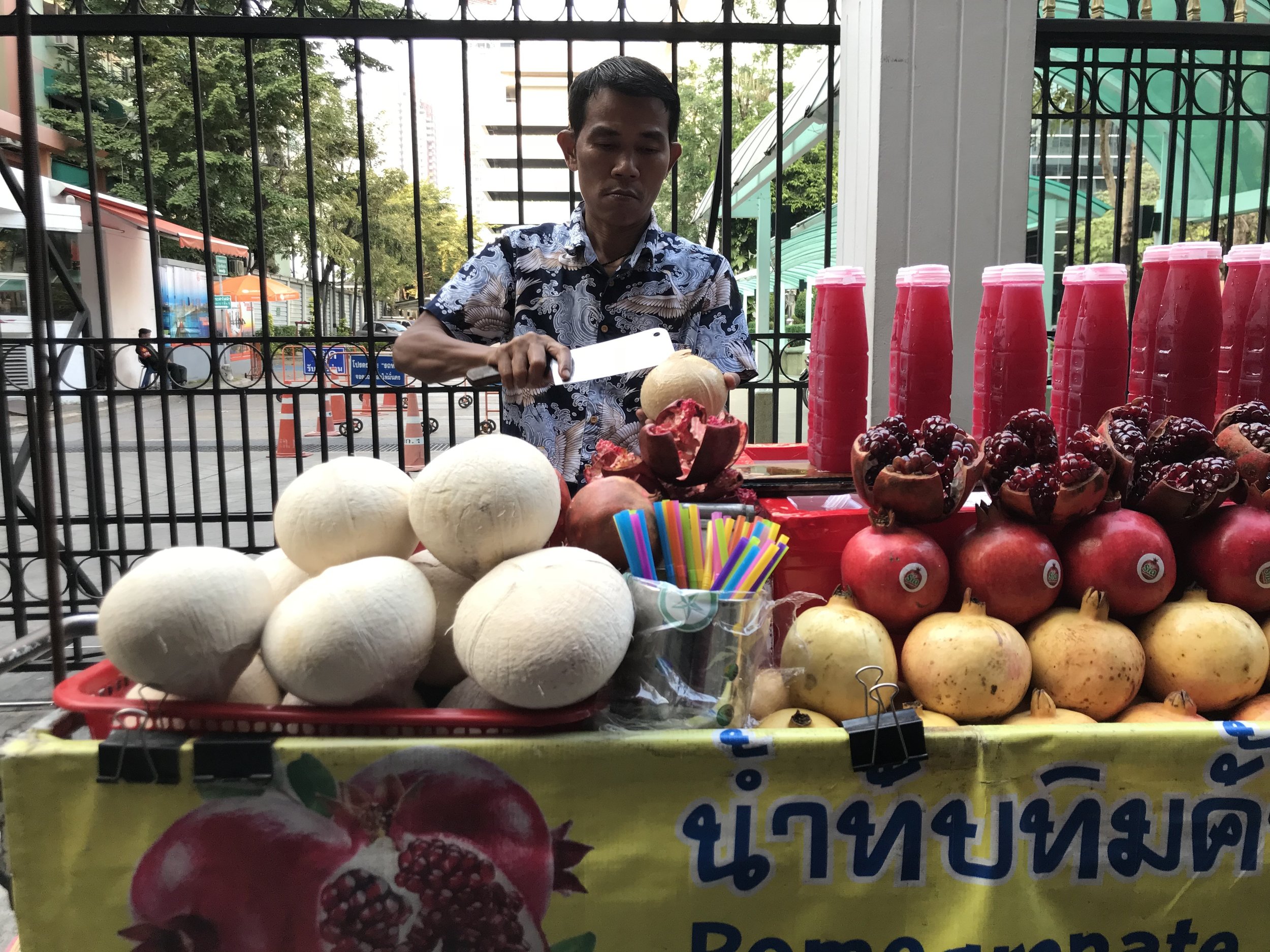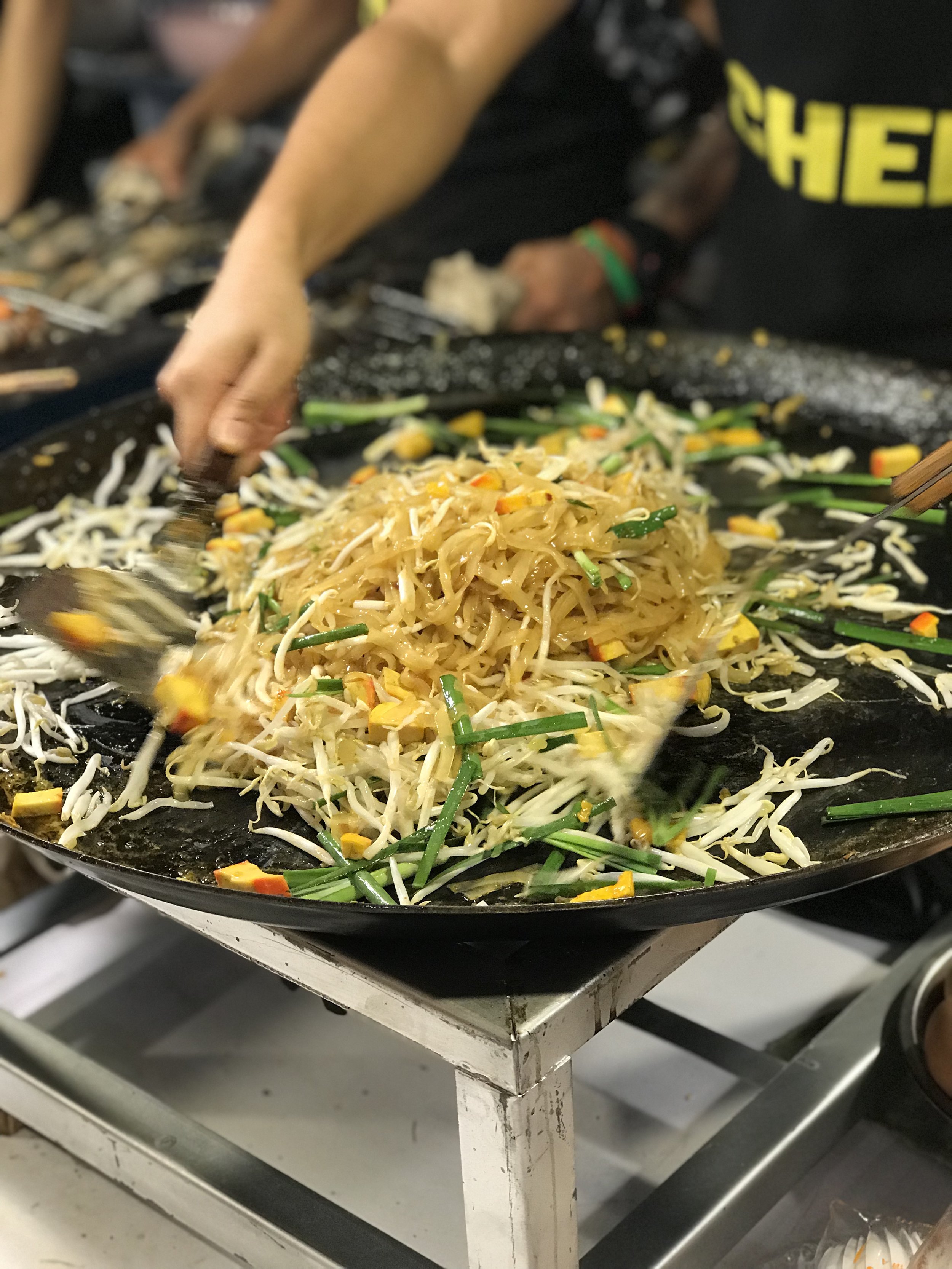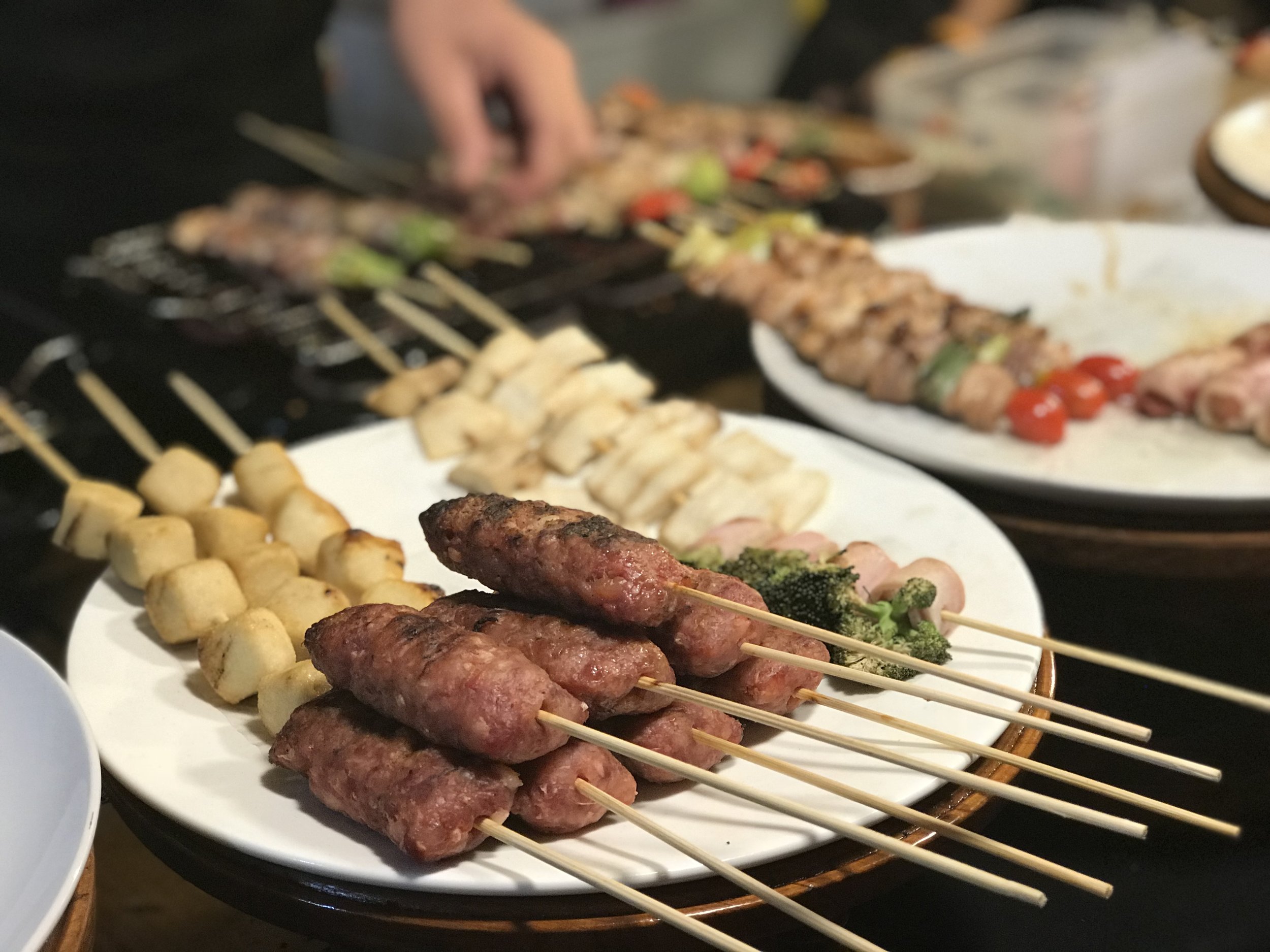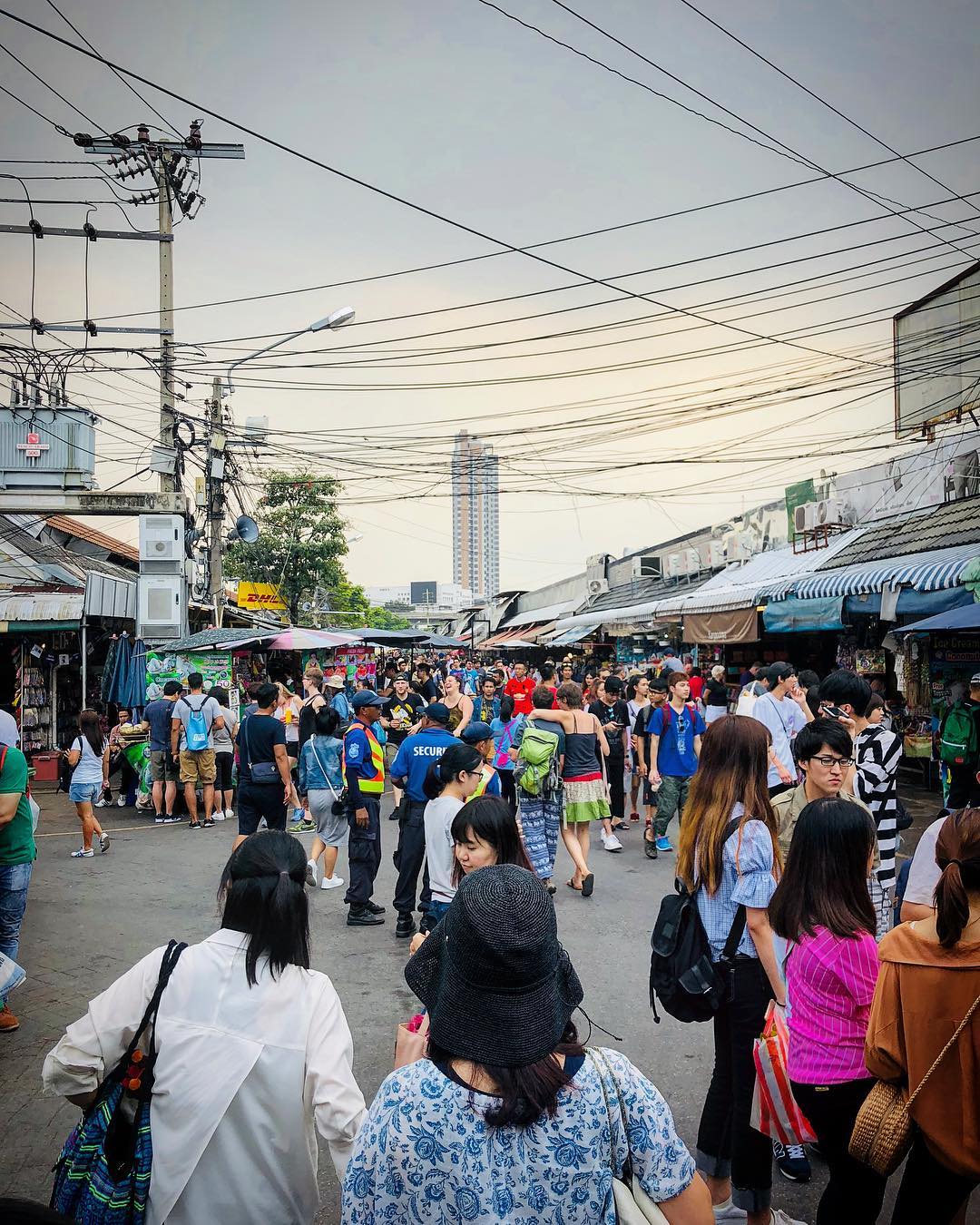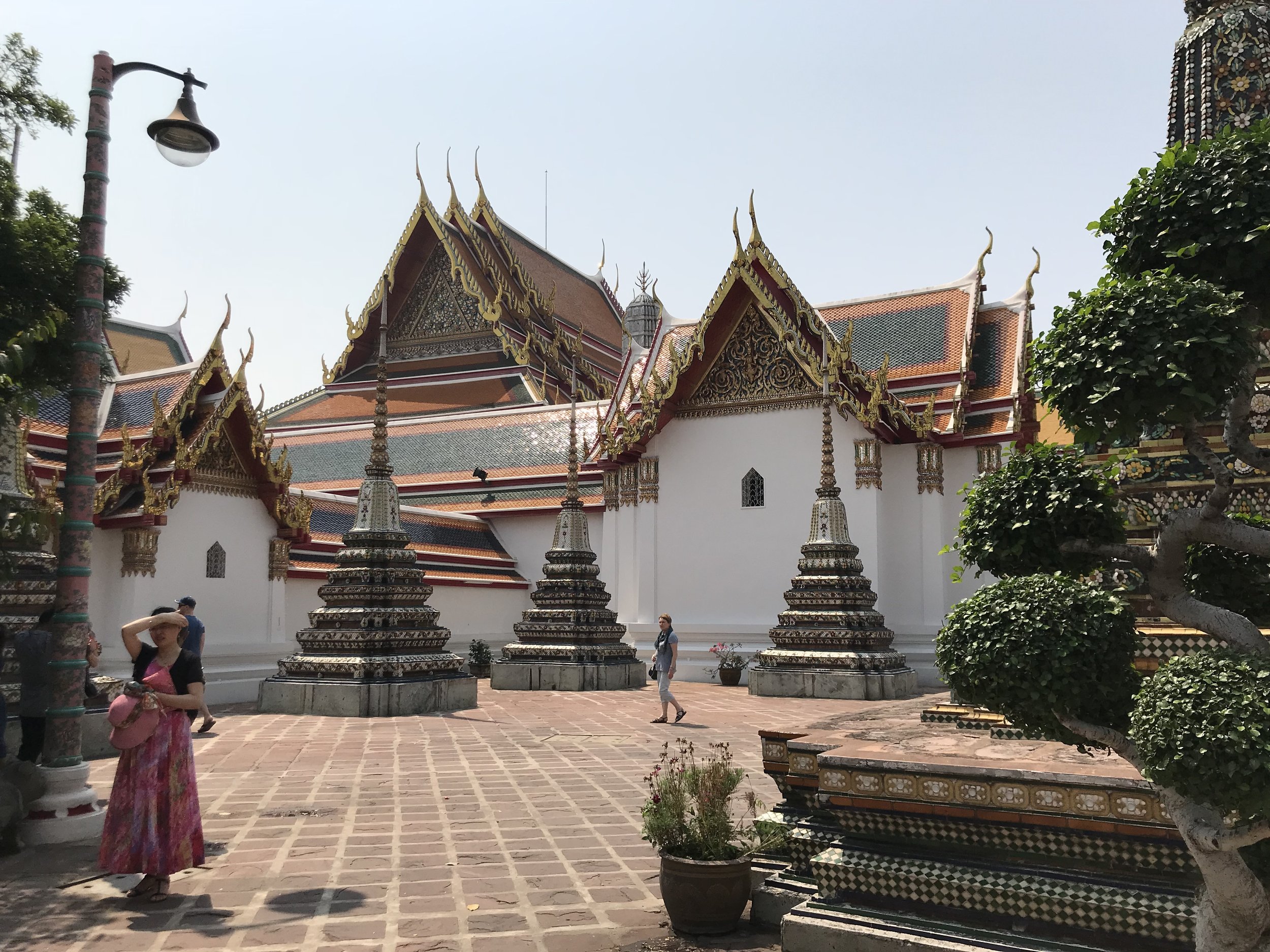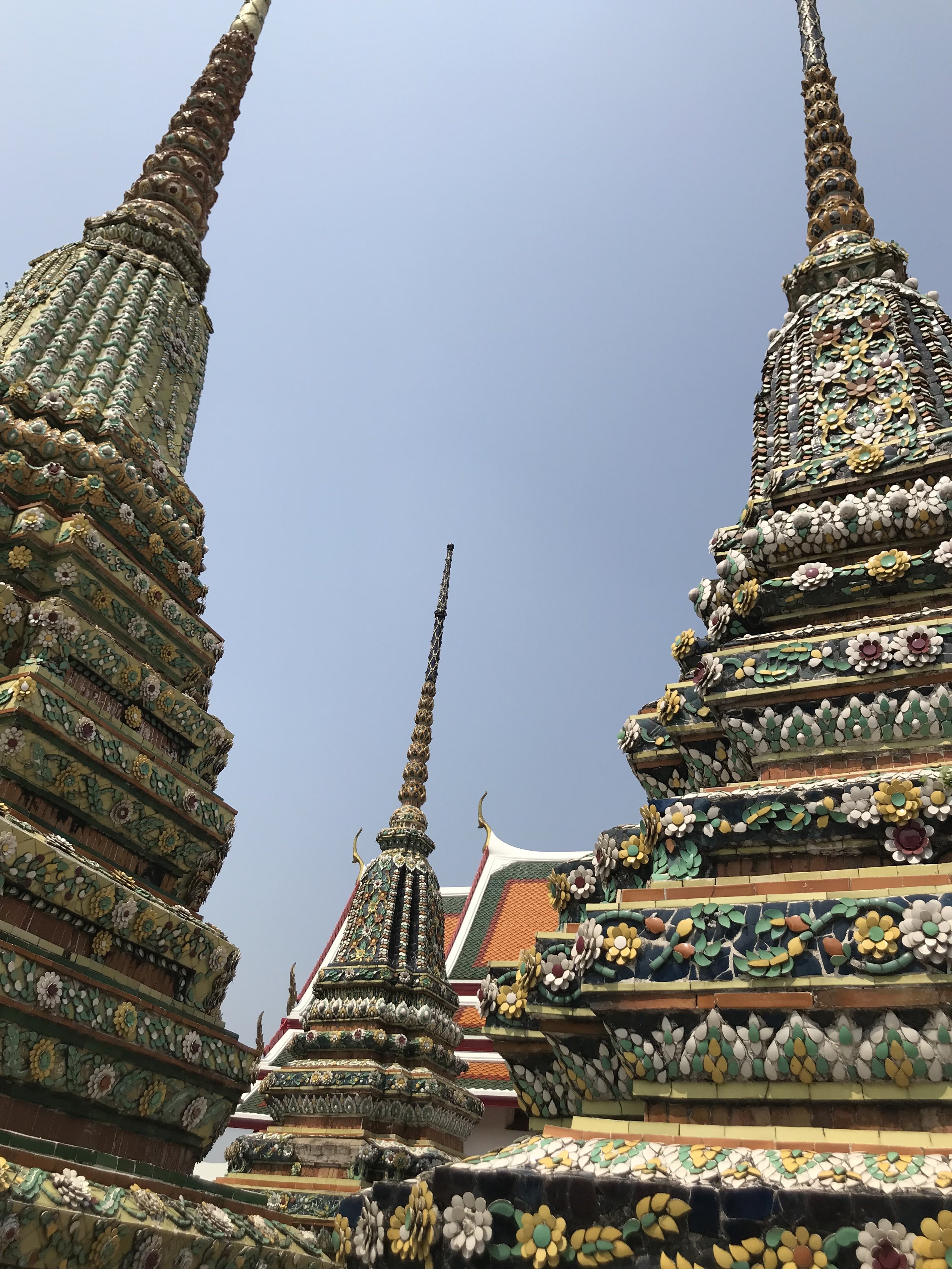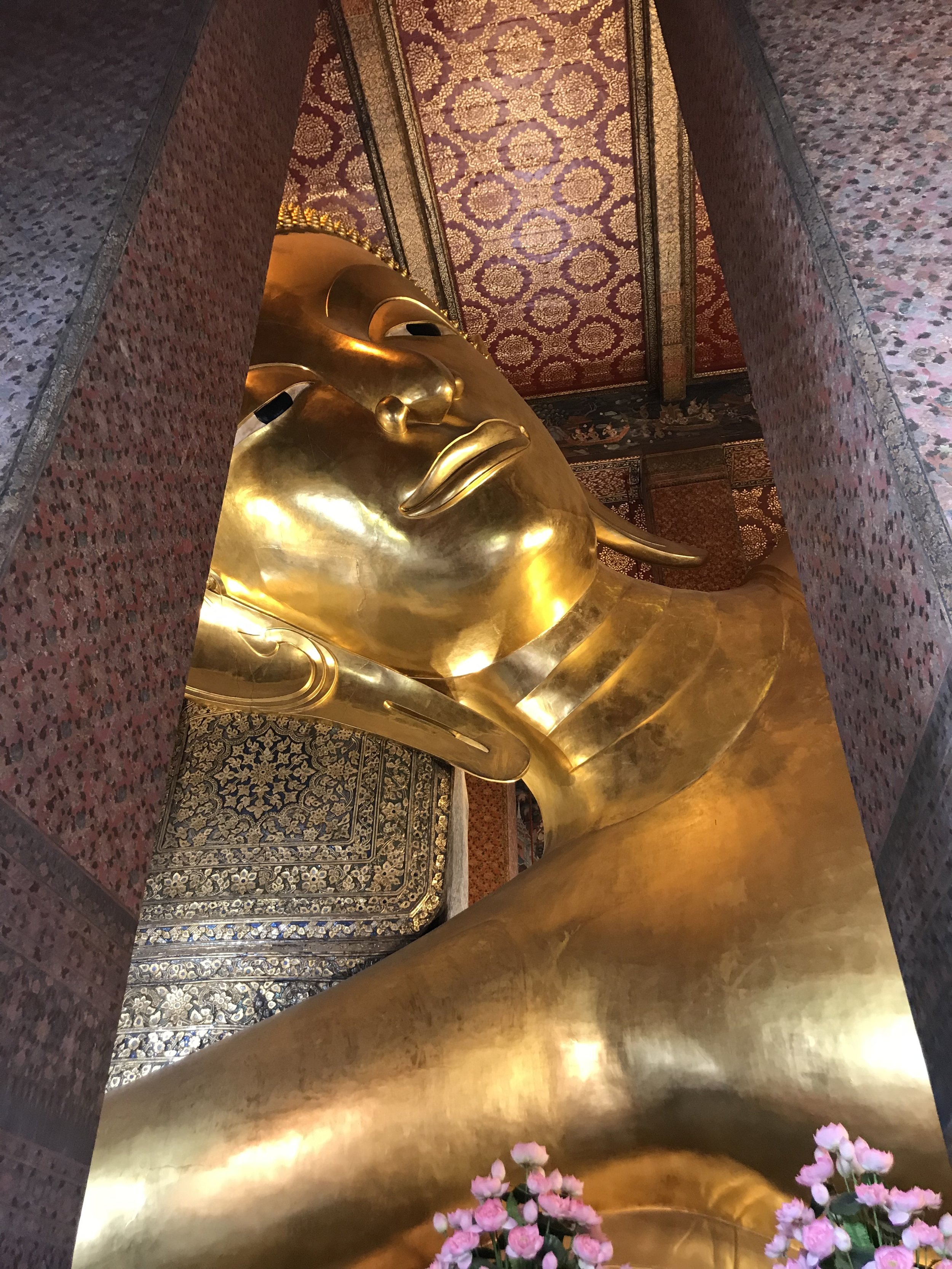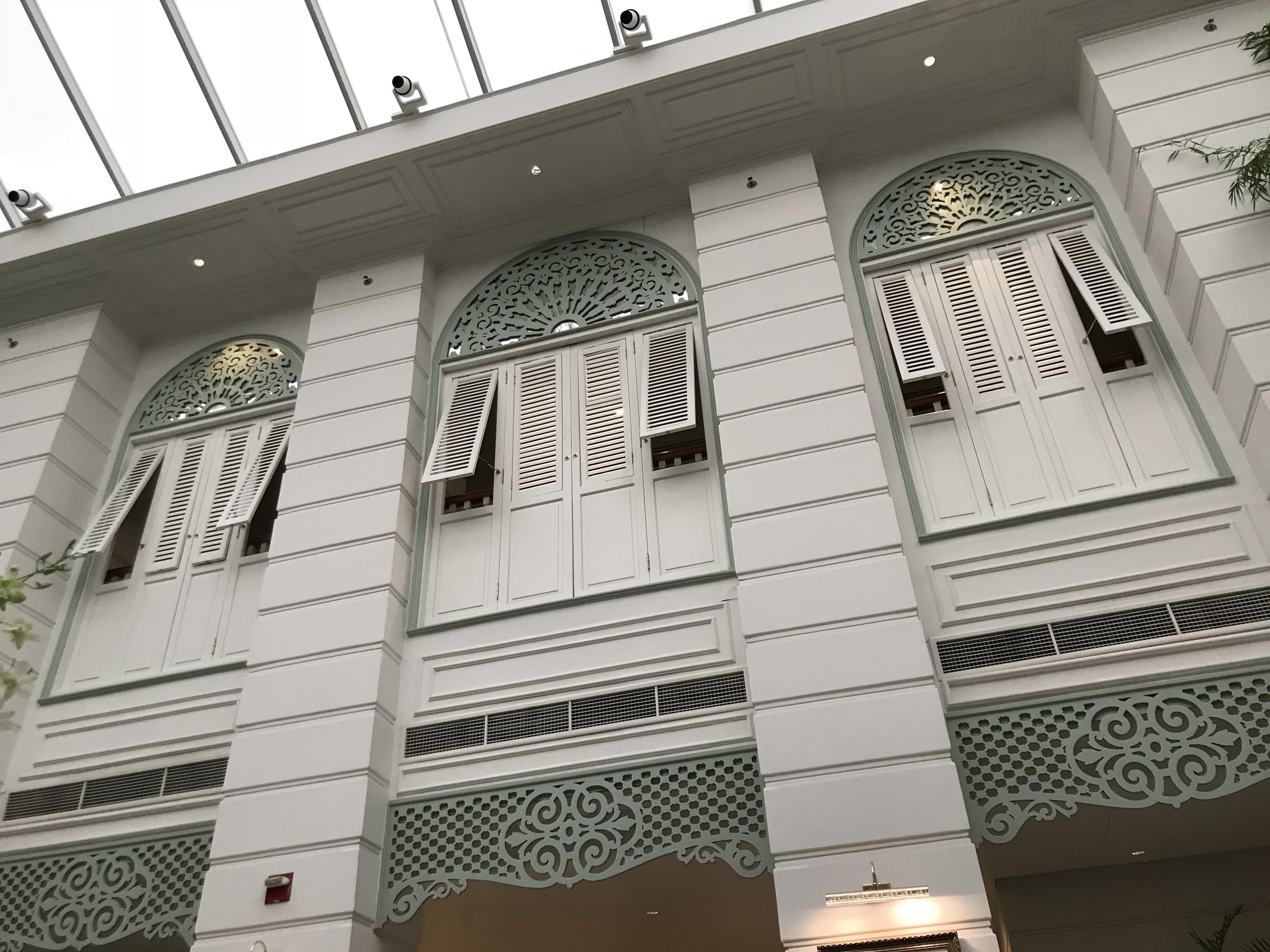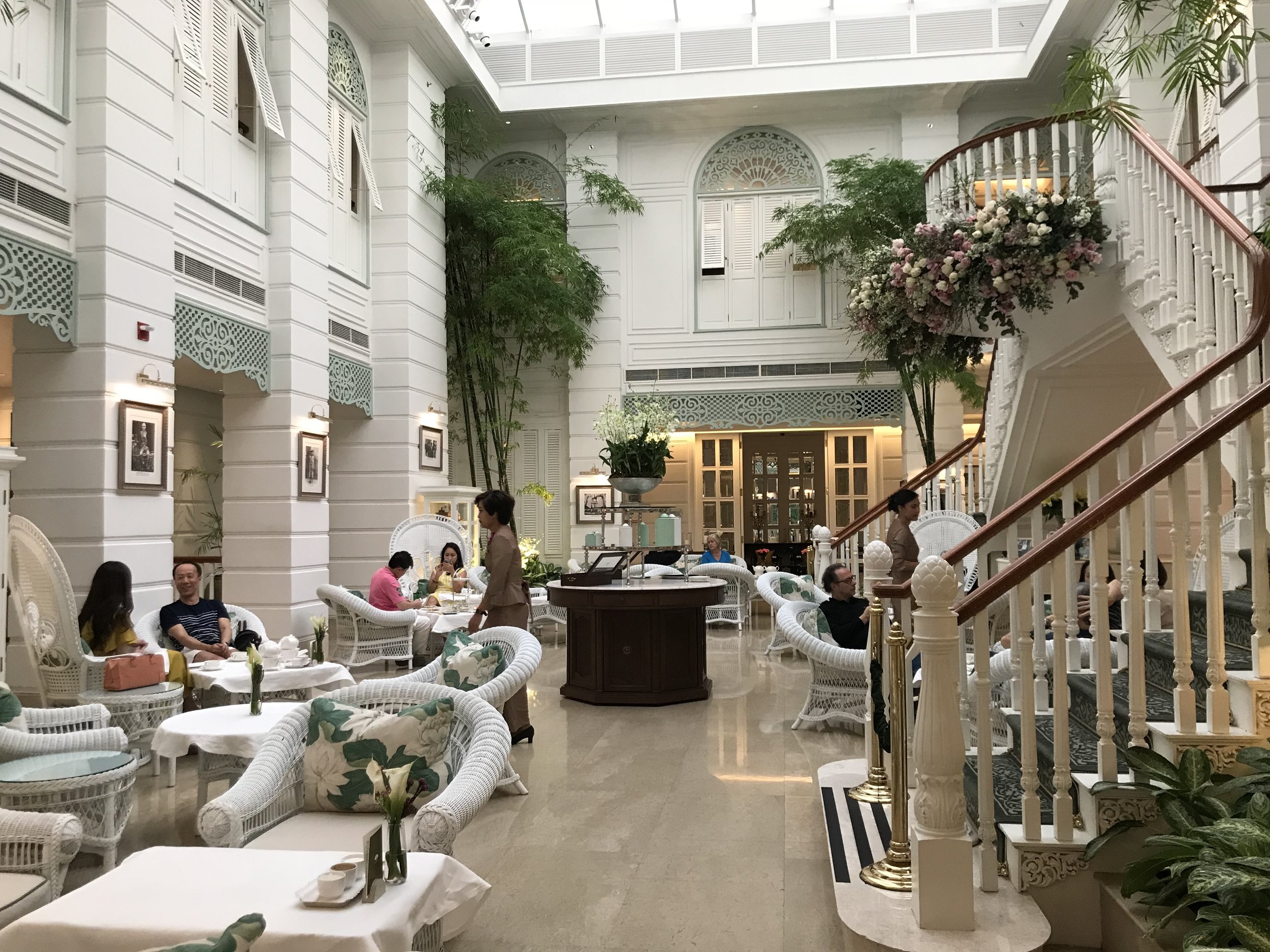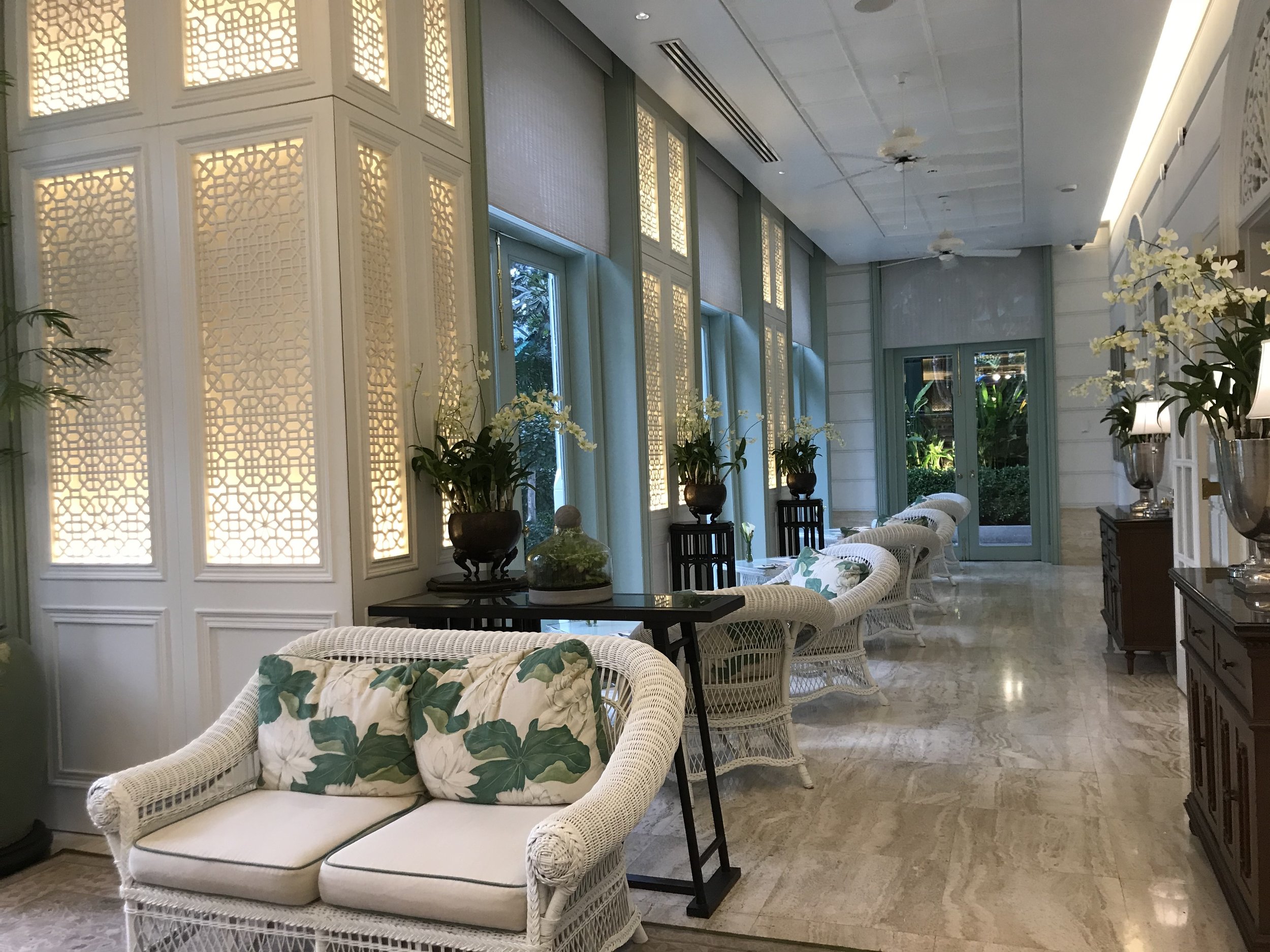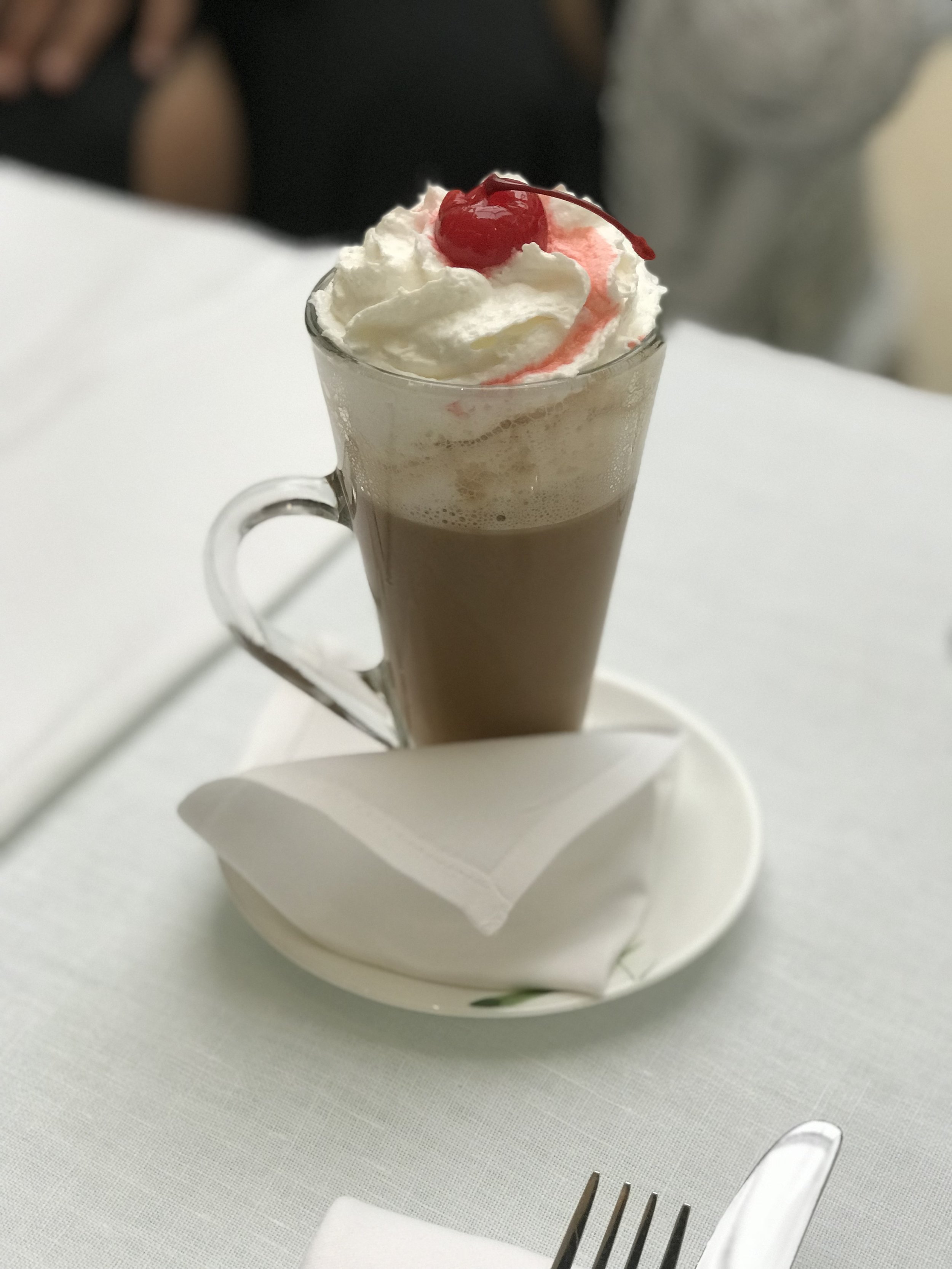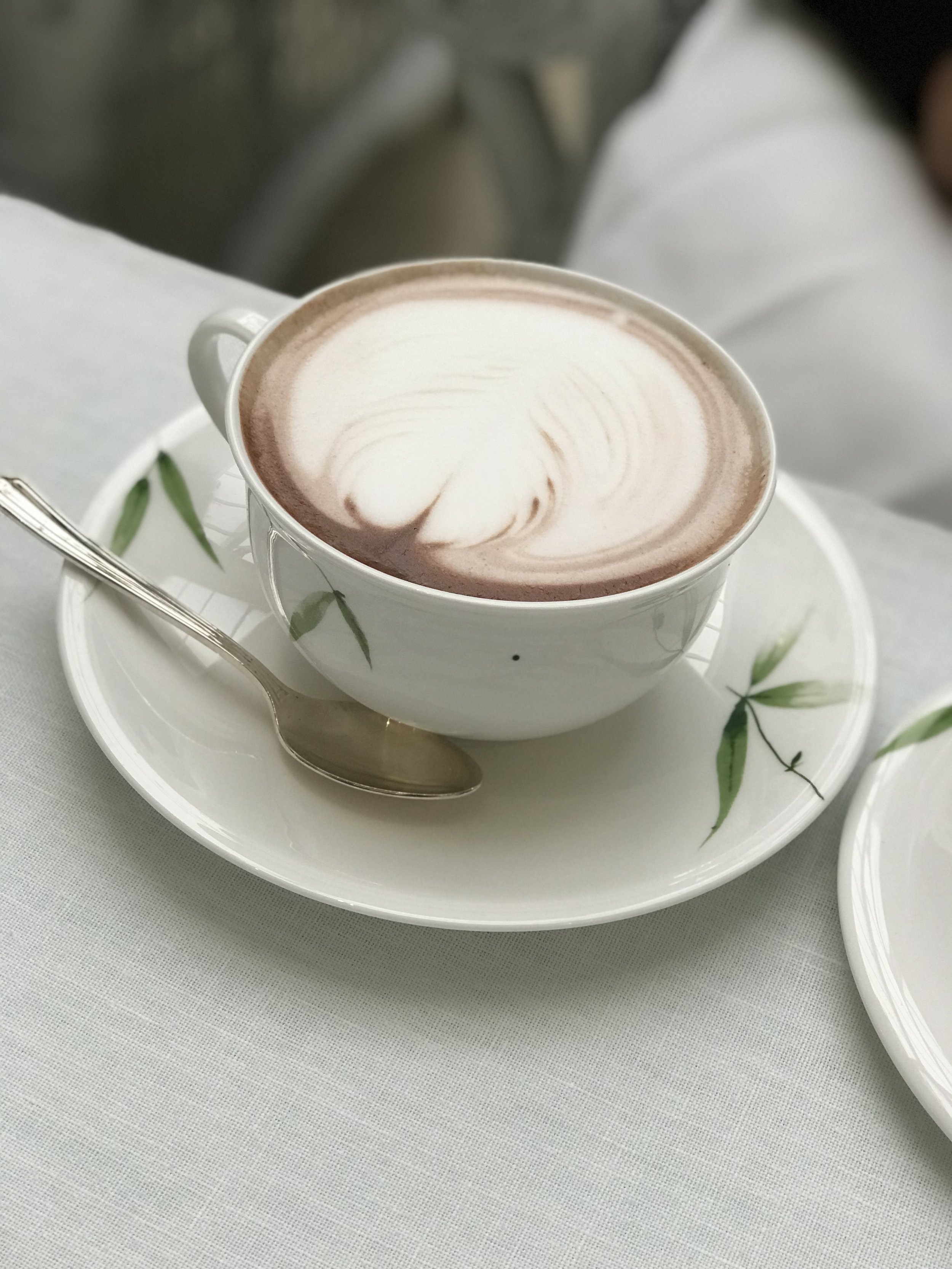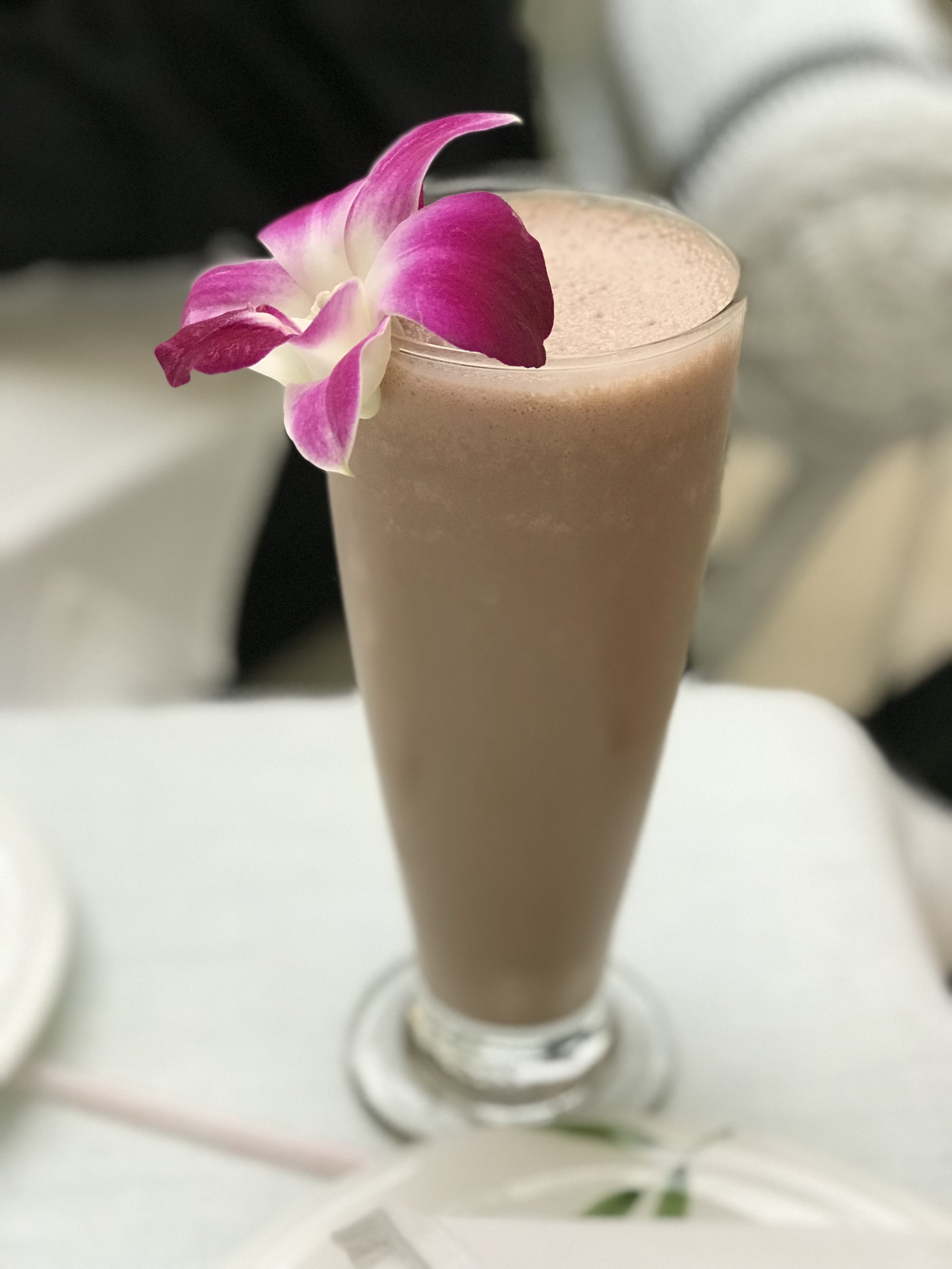The Authors' Lounge, Bangkok, Thailand
"But change of scene also, on one condition, can do much. I have known writers who made adventurous journeys, but took along with them their house in London, their circle of friends, their English interests and their reputation; and were surprised on getting home to find that they were exactly as when they went. Not thus can a writer profit by a journey. When he sets out on his travels the one person he must leave behind is himself." (W. Somerset Maugham, The Gentleman in the Parlour, from the Preface)
There's no doubt that travel requires of us a number of things: funds, time, patience, flexibility, and curiosity are only the first that come to mind. W. Somerset Maugham's pronouncement that it requires us to leave ourselves at home strikes me as particularly complex. On the one hand, I agree that staying safely within one's bubble while abroad does seem to defeat the purpose. But I'd argue that traveling merely to escape oneself is just as problematic. After all, we cannot yet travel via astral projection; we must take ourselves with us. We are not, however, required to bring ourselves home in the same condition. This, I think, is at the heart of Maugham's proscription: one must be willing not only to allow a place to surround them. One must be willing to allow a place to change them.
I had hoped to allow Bangkok to do that for me; Bangkok obliged.
I began reading Maugham's The Gentleman in the Parlour after an afternoon at Bangkok's Mandarin Oriental Hotel. Maugham stayed at the Oriental during a bout of malaria while on the "journey from Rangoon to Haiphong" documented in that book. The Authors' Lounge at the hotel offers an exceptional tea service, which ranks as one of the most memorable dining experiences of my life. It turns out, the hotel has quite a literary legacy, about which they have published a few promotional articles, such as this one by Neena Dhillon. Since returning, I've spent some time reliving my trip by trying to see Bangkok through Maugham's eyes. In some passages, I recognize it; in others, I wonder if time has worked such magic as to have allowed us to visit two totally different cities.
Maugham describes the "populous modern cities of the East," including Bangkok, as causing "a certain malaise." He writes, "They are hard and glittering and as unreal as a backcloth in a musical comedy. They give you nothing. But when you leave them it is with a feeling that you have missed something, and you cannot help thinking that they have some secret that they have kept from you" (163).
I can sympathize with this sensation. I feel a sort of incompleteness about my time in Bangkok, perhaps because I wasn't there very long. Perhaps it's also because Bangkok is rather intimidating with its presentation of so many various and simultaneous facets. In terms of first impressions, Bangkok's is as a city of contrasts. One could eat very well here and never buy food indoors. The street food scene is renowned and well documented. Fresh coconut milk, right from the coconut, is available on nearly every corner. I also had some delicious pad Thai from a street food festival honoring lunar new year. The largest weekend market in the world, Chatuchak (photo below by Dhrubo Mazumdar), is also in Bangkok. One can find just about anything there, from inexpensive clothing to homegoods, from artwork to ... of course ... food. Such low-cost, informal options abound in Bangkok. The city offers you a taste as soon as your feet hit the pavement. And it doesn't disappoint.
On the other hand, Bangkok has an opulent sheen. From certain vantage points, at specific angles, the city shines as if it's in a snowglobe filled with gold flakes. Some of these moments come inexpensively, like inside a wat. Others, like the tea service at the Author's Lounge, are at higher price points. But these shimmering moments are also essential Bangkok: the city refuses to be boiled down to $2 elephant pants and meat on sticks.
Consider Wat Pho, a Buddhist temple which contains several buildings, one of which houses the reclining Buddha, a large golden statue of the Buddha as he achieves nirvana. Admission was 100 baht (less than $3 US), and let us wander around on our own. The walls surrounding the wat afforded the illusion that gritty, day-to-day Bangkok had receded into the heat. We were left with the beautiful artwork and architecture of spiritual celebration. Spires covered in tiny tiles rose from the ground like fantastic stalagmites, and the maze of astonishing buildings provided endless awe.
Maugham's description of the wats rings only partially true for me: "I do not know that in fact they achieved art," he writes. "I do not know that these Siamese wats have beauty, which they say is reserved and aloof and very refined; all I know is that they are strange and gay and odd, their lines are infinitely distinguished, like the lines of a proposition in a schoolboy's Euclid..." (168). Maugham should also have left at home his rigid delineations of art. The wats are indeed "strange and gay and odd," and they are art, and they are beauty. They are the artists' hearts and faith and love made manifest. Maugham was right, at least, that these places inspire curiosity, and when seen up close, the painstaking detail of the tile work and the interior wall art is breathtaking.
“... and, like a place where seven ways meet, they open roads down which the imagination can make many a careless and unexpected journey.”
This same opulence, emanating from a careful attention to precision and detail, can be found in the tea service at the Author's Lounge at Bangkok's Mandarin Oriental Hotel. No single post could do justice to Bangkok's food scene, nor could a single visit. But our extraordinary experience at the Author's Lounge informs all my memories of that city, not just for its sophisticated elegance, but also for the portal it opened to an aspect of Bangkok's history and culture, one to which I may not otherwise have had access.
As our car arrived at the hotel, elegance was on display immediately. The lobby, while bustling, was resplendent with a beautiful fountain and huge floral arrangement. The delightful fragrance of the flowers surrounded us. The Authors' Lounge does enforce a smart casual dress code, but my 7-year-old niece fit in quite comfortably. The opulence here was comfortable and relaxing rather than stuffy and off-putting.
The Authors' Lounge is a short walk from the lobby. We may as well have followed our noses. The flowers around the balcony of the lounge are like a crown, emanating soft fragrance throughout the room.
The Lounge has a two-hour limit on its tables, which seemed strange to me when I made the reservation. Specifically, I wondered how it could take a party two hours to drink tea and eat a few snacks. I quickly realized how easy it would be to linger in this place for an entire afternoon. The setting is so comfortable and inviting. This was a place for lingering. One might even decide to recline here, and it wouldn't surprise me to learn that at least one diner had achieved nirvana here as well.
The wicker furniture and shuttered windows gave the impression that we were guests at a country estate, far from the heat of southeast Asia. This colonial influence speaks, I think, to the Oriental's tradition of attracting notable guests from Europe and the UK.
We were treated to an assortment of sorbets to start. We each received a small amount, just enough for a refreshing and cool palate cleanse. We ordered some non-tea beverages that set the stage for the decadence that awaited us. My sister-in-law ordered the Fiaker, a hot coffee drink with rum. My mother-in-law ordered hot chocolate, and my niece found a chocolate milkshake on the menu. All three were hits. My niece adored the flower in her shake, and I was so happy she had found a treat to make this rather grown-up occasion feel special for her.
It should come as no surprise that the menu includes an extensive tea selection. My mother and I ordered two different options to accompany our tea services. The tea was kept warm with tea lights as we lingered over our food, and our servers refilled our cups regularly.
When the tea sets arrived (we ordered a Western Afternoon Tea Set and an Oriental Afternoon Tea Set) we were amazed at their creativity and bounty. Here, as at the wat, was one of those gold-flaked moments, in which Bangkok seemed to shimmer around me. The three tiers of sandwiches and pastries presented us with a seemingly endless variety of visual and gustatory delight. The top plates contained sweets, like a macaron, a dark chocolate truffle, and a white chocolate shell filled with strawberries and cream.
The savory middle plate included an egg sandwich, a ham roll, and an asparagus gelee among other bites. Breads and scones filled the bottom plate, with preserves to the side.
Hot hors d’oeuvres were served in small bowls, stacked enticingly. There were coconut dumplings inside banana leaves. There was a mango sticky rice tart. There was a spring roll. There was surprise and delight with each hand-held masterpiece. Each morsel was like a tiny tile in a mosaic, contributing its artistry to the whole of a spectacular experience.
That experience is designed to be one of languid luxury. Relax. Nibble. Sip. Repeat. It's a reminder to slow down and enjoy the pleasures of life and, on this occasion, family. Service was impeccable and unobtrusive, and we were able to enjoy each other's company. A popular topic of conversation was the shared wonder over the beautiful bounty in front of us, and how much of it we might possibly consume. We fared pretty well, I suppose, though I must report that the Lounge's leftover bags are just as elegant as you might suspect.
In an article published by the Mandarin Oriental, Carla Sommers writes of Joseph Conrad's infatuation with Bangkok, and particularly his fondness for the Oriental Hotel. She notes that he was never an overnight guest, since "His paltry captain's wages only allowed him the pleasure of drinking at the bar." He's nonetheless honored with an eponymous suite and a restaurant named Lord Jim's. The Authors' Lounge celebrates the legacy of the many authors who have passed through the hotel's doors. In the area where we sat, we were surrounded by photographs of the hotel's famous guests. After tea, my sister-in-law and I wandered toward the garden and ultimately to the Chao Phraya. We passed through the Maugham suite, pictured below. I believe this is the room where he lived during the stay captured in The Gentleman in the Parlour.
We then walked through the garden and on to the river. As Maugham recovered from malaria, he would relax by the river, and it was here that he wrote the "fairy story" included in The Gentleman in the Parlour. Another restaurant sits between the hotel and the river, with plenty of outdoor seating where one could watch the boats.
Some characteristics of any city are timeless, of course, even as skylines change. The secret of "these populous modern cities of the east" -- the one which Maugham felt eluded him -- may be something like the pearl for which Sal zigzagged across America in Kerouac's On the Road. It's yours for the taking, but no one will hand it to you. You have to slow down, take in the tiniest detail within the context of a bustling cacophony. The Author's Lounge is a temple to gustatory celebrations the way Wat Pho is for spiritual ones. Bangkok offers these types of splendid dining options at both poles of the spending spectrum, all under the umbrella of gracious hospitality; to glimpse Bangkok's secrets, though, look for those flakes of gold falling through the sky. Chances are good that there is astonishing beauty just around the corner, or maybe even right there at the end of your fork.
The Authors' Lounge, Mandarin Oriental
48 Oriental Avenue
Khwaeng Bang Rak, Khet Bang Rak
Krung Thep Maha Nakhon 10500, Thailand
If you're not already following Matters of Taste on Instagram, check us out!

